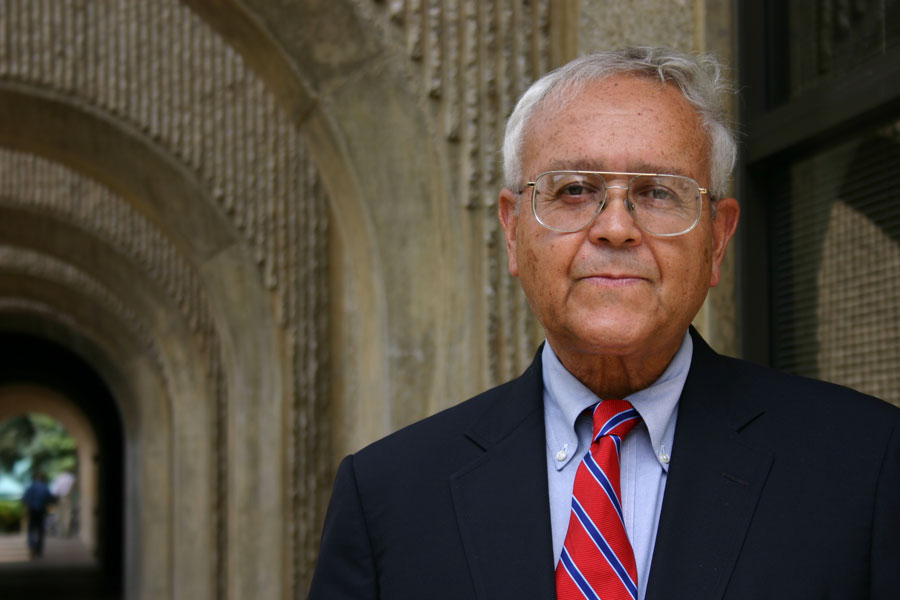Why Supreme Court shouldn’t strike down mandatory union dues
(This article originally appeared in The Mercury News on February 23, 2018.)
Four decades ago the Supreme Court held that public employee unions could negotiate with government about “fair share” agreements requiring all workers to pay for the costs of representation (Abood v. Detroit Board of Education). This holding went off the tracks in its characterization of both unions and First Amendment jurisprudence. Furthermore, in the case before the court Monday (Janus v. American Federation of State, County and Municipal Employees), all tea leaves point toward a reversal of that decision that will create far more mischief.
Four of the sitting justices have already signed on to opinions holding that state and local governments must justify such agreements through a “compelling interest” on the ground that they suppress the speech of non-union employees, even though that same court held that public employees do not generally have a constitutional right to protest working conditions.
The signs now point to Justice Neil Gorsuch joining the four others. This judicial activism will create, in one swoop, a nationwide “right to work” law for the entire public sector, similar to laws already adopted by 28 states in the private sector. The right to work laws that have now spread to heavily unionized states like Michigan, Wisconsin, and Indiana (followed last year by Missouri and Kentucky) have had an immediate impact on union membership — a 4 percent loss in Wisconsin constituting the most dramatic dip. This has furthered a union decline that has occurred simultaneously with a rise in inequality and a decline in political participation by organized labor, a vital prerequisite to a democratic pluralistic society.
Though public employee unions now have almost as many members as in the private sector (7.2 million vs. 7.6 million), the number of public union members as a percentage of the work force is six times higher than in the private sector. The Janus case takes direct aim at the one remaining arena of union strength.

True, the court may not be able to kill collective bargaining. States like California have already enacted new laws providing for more union access to recruit new hires. Unions have attempted to charge non-union employees special fees for grievance representation (though the Supreme Court of Nevada has held such representation lawful, the US Supreme Court has yet to address this issue). In any event, these measures are second-best palliatives.
A decision holding “fair share” unconstitutional would be wrong-headed. In the first place, it would be an end run around the political process that has been followed in the private sector. Second, it creates an incentive to be non-union. Only a majority of workers can trigger collective bargaining. When they do, the unions act as exclusive representative for both union and non-union members alike. If workers get the same pay package and conditions, it is nonsensical for them to pay for what all can get for free.
Third, the interest of government as manager is frequently supportive of exclusive representation. This preference for order and stability would be undercut and inconsistent with the court’s earlier holding that public employee grievances should not be constitutionalized so that public employers can be more efficient.
A 2018 reversal of the 1977 precedent would be inconsistent with its earlier holdings that collective bargaining is akin to representative government. Dues are like taxes. From the very beginning of the Republic, it has been axiomatic that citizens cannot refuse to pay their taxes because they disagree with policies, like Bush’s invasion of Iraq, for instance.
State government mandates the payment of fees to many private organizations. Lawyers cannot object to state required and privately financed continuing legal education courses, even though they might disagree with the position taken in such courses on matters as diverse as drugs, bias, and relationships with clients. The First Amendment does not protect free speech here.
The court’s failure to follow this precedent in 1977 has created endless litigation about which dues’ expenditures are germane to collective bargaining (permissible) and which are political (impermissible). But from the time of Samuel Gompers, onward labor has been political. “The notion that economic and political concerns are separable is pre-Victorian,” said Justice Felix Frankfurter six decades ago. In an otherwise laudatory ruling, the court missed that point in 1977, a demarcation line that allowed the activist four justices to claim that their approach would diminish such controversy. This court now seems destined to exacerbate that deficiency to the detriment of democracy in the workplace and in the political process.
An expert in labor and discrimination law, William B. Gould IV has been an influential voice on worker-management relations for more than forty years and served as Chairman of the National Labor Relations Board (1994-98) and Chairman of the California Agricultural Labor Relations Board (2014-2017). As NLRB Chairman, he and his agency played a critical role in ending the longest strike in baseball history (1994-95)—and he was a salary arbitrator in the 1992 and 1993 salary disputes between the Major League Baseball Players Association and the Major League Baseball Player Relations Committee. Gould has been a member of the National Academy of Arbitrators since 1970 and has arbitrated and mediated more than 300 labor disputes. He is the Charles A. Beardsley Professor of Law, Emeritus at Stanford Law School.
